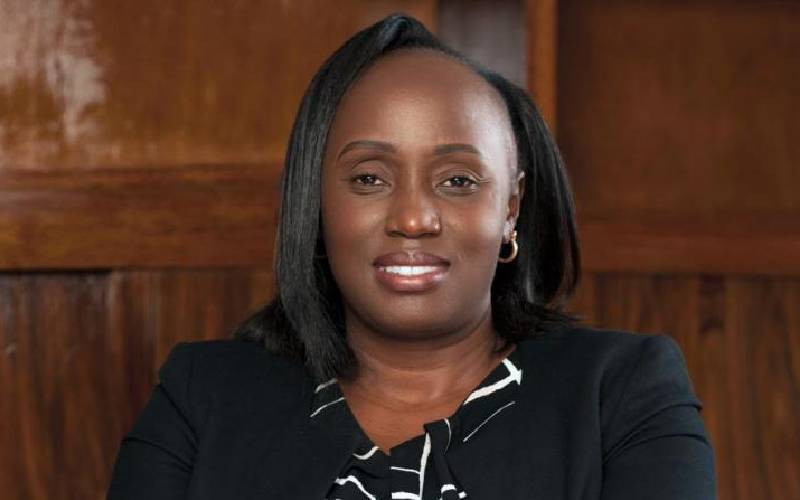By Cyrus Ombati
The Kenya National Commission on Human Rights wants the government to introduce abortion classes among all medical students as part of efforts to operationalise the Bill of Rights.
The commission says training gaps exist because of lack of clarity in the current abortion law and health practitioners are not taught how to terminate pregnancy.
"Curriculum in the medical training colleges and universities will also need to be reviewed to ensure abortion is taught," says the commission.
 |
KNCHR Chairperson Florence Jaoko (Right) and Commissioner Omar Hassan Omar read a report on making the bill of rights operational at a Nairobi hotel on Wednesday, December 7 during the launch of the report (Photo:Collins Kweyu/Standard) |
KNCHR launched a report dubbed Making the Bill of Rights Operational: Policy, legal and Administrative Priorities and Considerations, which it wants to be used as a manual for government to monitor the section of the constitution.
The report sited a study conducted by the Centre for Reproductive Rights which found difference in the curriculum of various medical schools and that nurses are not taught on abortion care with the curriculum focusing more on the illegal aspect of the practice.
The report calls on the medical profession to ensure in-service training on abortion regularly to ensure members are updated on reproductive healthcare.
"Information on reproductive health and safe abortion will need to be available and the ministry responsible need to ensure all communication material responds to this need," reads part of the report.
The report demands that the state provides adequate human and financial resources to reproductive health services, evaluate training needs at the different medical personnel and respond appropriately and facilitate access to contraceptives and counseling support.
A human rights officer Lucy Minayo who made a presentation on the issue said there is need for funding on the issue to be introduced because in the current statutory law abortion is considered illegal and no investment has been made to improve facilities to make it safer.
The report calls for the need to grant women the option to undergo termination of pregnancy in safe conditions, which should be a matter of public interest because of the implications of the death of women to the development of the country.
The report was compiled following a study of the conceptual and practical uses of Bills of Rights around the world.
There are nine chapters in the report with the first part highlighting on the conceptual and normative value of the Bill of Rights while the second one talks on the implications of Kenya’s move from a dualist to a monist state.
Chapter three highlights on the remedies of the abuse of the rights and calls on the CJ to hasten fast judicial services while four talks on the limitations of the rights.
Chapter five guides on how to effect the principle of progressive realization of economic, social and cultural rights provided under Article 43 while the sixth one discusses abortion as captured under Article 26 (4) on legal termination of pregnancy and Article 43 (1) on the right to reproductive health.
Chapter seven and eight discusses on the rights of persons with disabilities and the rights of the youth while nine shows how Article 20 of the constitution has expanded responsibility for human rights.
 The Standard Group Plc is a multi-media organization with investments in media
platforms spanning newspaper print operations, television, radio broadcasting,
digital and online services. The Standard Group is recognized as a leading
multi-media house in Kenya with a key influence in matters of national and
international interest.
The Standard Group Plc is a multi-media organization with investments in media
platforms spanning newspaper print operations, television, radio broadcasting,
digital and online services. The Standard Group is recognized as a leading
multi-media house in Kenya with a key influence in matters of national and
international interest.
 The Standard Group Plc is a multi-media organization with investments in media
platforms spanning newspaper print operations, television, radio broadcasting,
digital and online services. The Standard Group is recognized as a leading
multi-media house in Kenya with a key influence in matters of national and
international interest.
The Standard Group Plc is a multi-media organization with investments in media
platforms spanning newspaper print operations, television, radio broadcasting,
digital and online services. The Standard Group is recognized as a leading
multi-media house in Kenya with a key influence in matters of national and
international interest.










